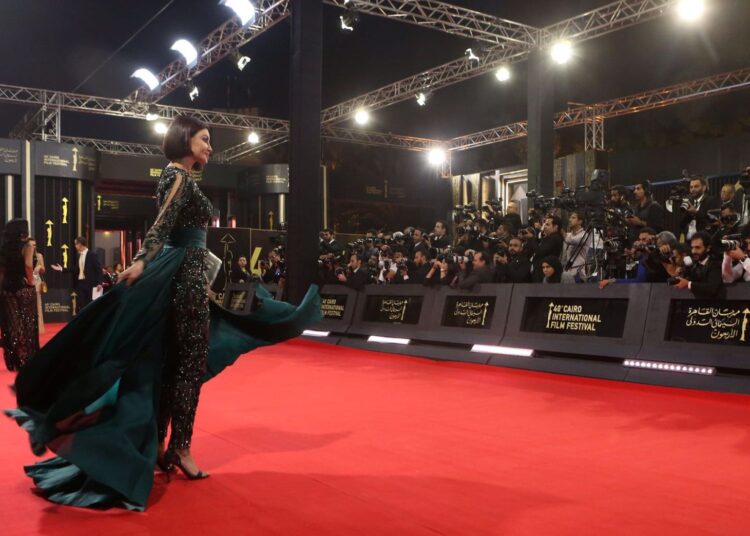The 44th edition of Cairo International Film Festival (CIFF), to be held between November 13 and 22, is expected to be an exceptional one.
One of the reasons, this will be the case, is that veteran actor Hussein Fahmy will return to be the head of the festival.
Cinema director Amir Ramses was also appointed as the manager of the festival.
In this interview with the Egyptian Mail, Ramses talks about his vision for the success of the festival and the challenges facing this success. He also talks about the latest edition of Cannes Film Festival.
Sir, can you give us an assessment of the last edition of Cannes Film Festival?
Cannes Film Festival continues to be the epicenter of the international film industry, regardless of any positive or negative evaluations. It is where this industry begins at the level of films and at the level of awards. I watched the most important American films this year. There was a celebration of American cinema in an airshow, in which the French aviation authority participated. This shows how France values the cinema industry, in general.
What did you see in Cannes that you wish to see in Egypt?
Cannes has an ability to attract audiences, which is a challenging matter in Egypt. During the last edition, the CIFF attracted 43,000 people. This surprised us because this was certainly a huge number, especially given the restrictions the Covid-19 pandemic imposed. This encourages us to aspire for greater numbers this year.
Do you think Egyptians need to be made more aware of the importance of such film festivals?
This issue is strongly connected with education. In France, children attend cinema classes where they watch films. Teachers then discuss these films with the children. Reading is also very important. School libraries have to contain books about the cinema. Some of the museums in France are dedicated to the cinema in industry. Few people go to the Opera House in Egypt. Few people are interested in ballet, for example, or the museums. We are badly in need of art education in our schools.
What do Asian and Latin American films add to an event like the Cairo Film Festival?
The CIFF is one of the biggest in the world. The festival’s international character must certainly be taken into account in programming. The festival must include films from all corners of the globe and introduce the cinematic scene in a diverse way.
Will you invite Hollywood stars to the new edition of the CIFF?
We are definitely working on this. However, this is an issue that needs months of communication before the date of the festival. Hollywood stars usually have their own schedules that are determined a year ahead. Nevertheless, we communicate with many different institutions to achieve this goal and hope to succeed in the end.
Will you hold the Cultural Forum on the sidelines of the festival this year as well?
Certainly, the Cairo Cinema Days is one of the most important sections that were created in the past years. Most other international film festivals feature this section. Of course, we will preserve the section this year and even upgrade it.

How have you benefited from your participation in El-Gouna Film Festival at the organisational level?
My participation in the festival gave me the chance to know the industry accurately. As a cinema director, I have had relations with foreign producers and actors. However, the festival made me part of every detail of the industry, including distribution, marketing and sales. It also introduced me to co-operation protocols between companies and festivals.
Are there El-Gouna Festival successes you want to remake in the CIFF?
Yes, of course. This has mainly to do with the ability to select the best international films to screen at the festival.
Do you consider bringing as many international cinema stars as possible to the festival your biggest challenge?
I think this will be a challenge to the stars themselves, not to me. You cannot force someone to come to the festival against their will. But let’s look at Cannes. Most of the world’s important stars attend it. They are keen on watching the films participating in the festival and attending its different events. I hope our stars will have passion for the cinema itself as an art, not for the perks it brings them.
Why are Egyptian films largely absent from international festivals? Do censorship and restrictions play a role in this regard?
I do not think censorship is to blame for this. The fact is that some local films suit the tastes of local and Arab audiences only. They are not made for an international audience.






Discussion about this post